What is Artificial Intelligence?
Artificial Intelligence (AI) pertains to the emulation of human cognitive processes by machines, especially computer systems. This involves the creation of algorithms and frameworks capable of executing tasks that typically demand human-like intelligence, including comprehending natural language, identifying patterns, gaining knowledge from experience, making choices, and solving complex problems.
Machine Learning (ML) is a subset of AI that concentrates on the development of algorithms and models enabling computers to learn and make predictions or decisions based on data. Instead of being explicitly programmed for precise tasks, machine learning systems leverage patterns and insights drawn from data to progressively enhance their performance. This evolutionary approach allows them to adapt and refine their capabilities over time.
Traces Of AI and ML In Our Everyday Life
Artificial Intelligence and Machine Learning have become integral parts of our everyday lives, often working behind the scenes to enhance various aspects of our experiences. Here are some common examples of how AI/ML are present in our daily routines:
Digital Assistants:
Voice-activated digital assistants like Siri, Google Assistant, and Amazon Alexa utilize AI to understand natural language, process voice commands, and provide responses or perform tasks such as setting reminders, answering questions, and controlling smart devices.
Social Media and Content Recommendations:
Platforms like Facebook, Instagram, and YouTube use ML algorithms to analyze users’ preferences and behaviours, suggesting relevant content, posts, videos, and advertisements based on their interests and past interactions.
Online Shopping:
E-commerce websites employ AI to personalize product recommendations based on your browsing history, purchase patterns, and similar users’ preferences. Additionally, chatbots often assist customers in real time with product inquiries and support.

How Machine Learning is Used in Enhancing Mobile Apps?
The utilization of Machine Learning to enhance mobile applications is a common practice that yields significant benefits. Here’s how Machine Learning is integrated to elevate the capabilities of mobile apps:
Personalized Recommendations:
Machine Learning algorithms analyze user behaviour, preferences, and historical data to provide personalized content, product recommendations, and suggestions. This enhances user engagement and satisfaction.
Predictive Text and Autocorrect:
Machine Learning is employed to predict and suggest words as users type, leading to improved typing speed and accuracy. Autocorrect features also learn from users’ corrections to enhance future suggestions.
Image and Speech Recognition:
ML-powered mobile apps can identify objects, scenes, and faces in images and videos. Additionally, speech recognition enables voice commands and transcription services, making interactions more seamless.
Health and Fitness Tracking:
Machine Learning algorithms in health apps can analyze data from wearables and sensors to provide insights into users’ health trends, suggest workout routines, and even detect anomalies.
Language Translation:
ML-driven language translation apps offer real-time translations of text and speech, making communication across languages more accessible and efficient.
Enhanced Search:
Machine Learning algorithms improve search functionality by understanding user intent and providing more accurate and relevant results.
Fraud Detection:
Mobile banking and payment apps utilize ML to detect fraudulent activities by analyzing transaction patterns and identifying anomalies.
Location-Based Services:
ML helps enhance location accuracy, optimize navigation routes, and provide personalized location-based recommendations in apps.
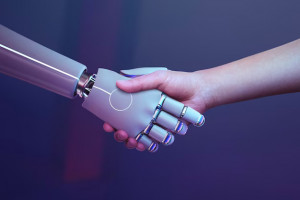
The Impact of AI on Mobile App Development
The influence of AI on the realm of mobile app development has been profound, reshaping the landscape in various ways. Here’s a rephrased take on the subject:
Artificial Intelligence (AI) has wielded a transformative effect on the domain of mobile app development, sparking a paradigm shift in numerous dimensions. This impact extends to:
Enhanced User Experiences:
AI-powered mobile apps offer heightened levels of personalization and interactivity. By comprehending user preferences and behaviours, these apps provide tailored content and recommendations, resulting in elevated engagement.
Advanced Automation:
AI streamlines the development process through automated testing, debugging, and even generating code snippets. This expedites the app creation cycle and enhances efficiency.
Predictive Analytics:
AI equips mobile apps with predictive capabilities, enabling them to anticipate user actions and preferences. This leads to smoother navigation and more intuitive interfaces.
Voice and Image Recognition:
The integration of AI-driven speech and image recognition technologies empowers apps to comprehend user commands and identify objects, consequently enhancing accessibility and functionality.
Efficient Resource Management:
AI algorithms optimize resource allocation within mobile apps, leading to improved performance, reduced battery consumption, and better overall user experience.
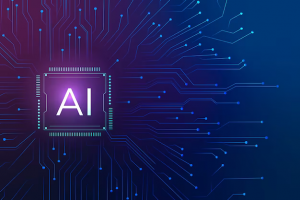
AI/ML in Mobile App Development Benefits
The integration of AI/ML into mobile app development brings numerous benefits. These technologies enhance user experiences by enabling personalized content recommendations, predictive analytics, and efficient resource management. They also bolster app security through behaviour analysis and anomaly detection. AI-driven chatbots provide round-the-clock customer support, while continuous learning from user interactions leads to ongoing improvements. Moreover, AI/ML optimize app performance, automate testing and debugging, and identify effective monetization strategies. Overall, AI/ML elevate mobile apps by making them more intelligent, user-friendly, and capable of adapting to evolving needs.
How AI is improving User Experience?
AI is significantly enhancing user experiences across various domains by bringing intelligence and personalization to interactions. Here’s how AI is achieving this:
Personalization:
AI analyzes user behaviour, preferences, and historical data to offer tailored content, product recommendations, and suggestions. This personal touch creates a more engaging and relevant experience.
Predictive Analytics:
AI anticipates user actions based on patterns, enabling apps to provide proactive suggestions and responses. This streamlines interactions and enhances user satisfaction.
Natural Language Processing (NLP):
NLP enables AI to understand and respond to natural language queries, making interactions more conversational and intuitive, as seen in chatbots and voice assistants.
Image and Speech Recognition:
AI-driven image and speech recognition technologies enable intuitive interfaces. Users can interact with apps through voice commands and identify objects in images, improving accessibility.
Efficient Search and Navigation:
AI-powered search algorithms understand user intent and deliver more accurate results. This simplifies navigation and reduces search time.
Chatbots and Virtual Assistants:
AI-driven chatbots provide instant assistance, answer queries, and resolve issues. Virtual assistants like Siri and Google Assistant offer personalized recommendations and tasks.
Challenges faced by developers without AI technology
Developers encounter various challenges when working without the support of AI technology. The absence of AI automation forces developers to perform repetitive tasks, leading to inefficiencies and prolonged development timelines. This deficiency also limits their capacity to provide personalized experiences to users, impacting user engagement and satisfaction. Managing and processing large datasets becomes a cumbersome task without AI’s data processing capabilities, hindering the extraction of valuable insights. Complex problem-solving becomes more challenging as developers lack AI’s pattern recognition and optimization capabilities. Manual testing, rather than AI-driven automation, consumes substantial time and is prone to errors, affecting the quality of applications. Additionally, routine tasks like customer support responses and data entry demand manual efforts, diminishing developers’ productivity.
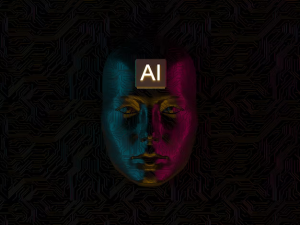
The Future of AI and Machine Learning-Powered Mobile Applications
The trajectory of AI and Machine Learning-powered mobile applications is poised to reshape the technological landscape. As these technologies continue to advance, their integration into mobile apps is set to revolutionize user experiences, functionality, and possibilities.
Hyper-Personalization:
AI will enable apps to understand users on a deeper level, tailoring content, recommendations, and interactions to individual preferences and behaviours.
Proactive Assistance:
Mobile apps will anticipate user needs and provide proactive suggestions, making daily tasks more efficient and intuitive.
Seamless Interfaces
Voice and gesture recognition, along with improved natural language processing, will create even more seamless and natural interactions.
AI-Infused Creativity:
AI-powered tools will assist developers in generating creative elements, from designs to music, revolutionizing app development.
Enhanced Augmented Reality (AR) and Virtual Reality (VR):
AI will enhance AR and VR experiences by making them more immersive, responsive, and adaptive to users’ actions.
Medical and Healthcare Applications:
AI will play a critical role in diagnostic accuracy, personalized treatment plans, and health monitoring through wearable devices.
Smart Predictions:
ML algorithms will refine their predictive capabilities, from predicting consumer trends to assisting with financial planning.
Ethical and Regulatory Considerations:
As AI-powered apps become more prevalent, addressing ethical concerns, such as bias and data privacy, will become paramount.
Business Optimization:
AI/ML will continue to aid businesses by optimizing processes, enhancing customer experiences, and driving data-informed decisions.
Autonomous Mobile Apps:
AI-powered apps will become more autonomous in performing tasks, making decisions, and adapting to users’ preferences without constant manual input.
FAQ’s
Q1: How is AI influencing mobile app development in the USA?
A: AI is transforming mobile app development by enabling features like personalized recommendations, predictive analytics, and natural language processing. This enhances user experiences and makes apps more intuitive and user-centric.
Q2: What role does Machine Learning play in mobile app development in the USA?
A: Machine Learning in mobile app development involves training apps to learn from data and improve over time. It helps apps adapt to user preferences, optimize resource usage, and automate tasks like testing, leading to more efficient and user-friendly apps.
Q3: What benefits do AI and Machine Learning bring to mobile apps developed in the USA?
A: AI and Machine Learning enhance user experiences by offering personalized content, proactive assistance, and efficient resource management. These technologies also streamline development processes, automate tasks, and improve app performance, resulting in higher user satisfaction.
Q4: Are there any notable examples of AI and Machine Learning in US mobile app development?
A: Yes, many popular apps use AI and Machine Learning. For instance, language translation apps employ AI for accurate translations, and ride-sharing apps optimize routes using ML algorithms. Virtual assistants like Siri and Google Assistant also utilize AI to understand user commands.
Q5: How are AI and Machine Learning expected to shape the future of mobile app development in the USA?
A: The future holds increased integration of AI and Machine Learning in mobile app development. Apps will become even more personalized, efficient, and adaptive, offering users seamless interactions and innovative features. Developers will likely rely on these technologies to create more sophisticated and user-centric applications.








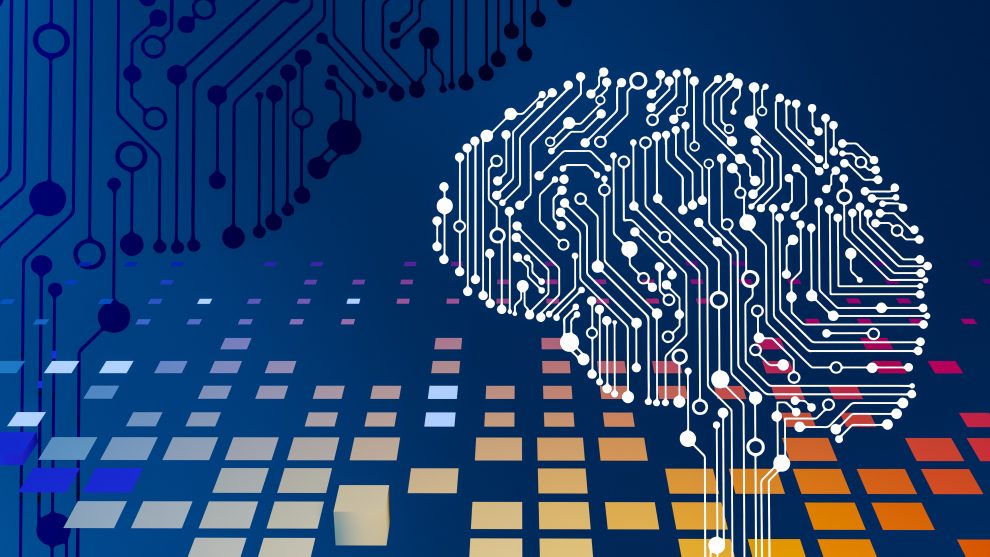
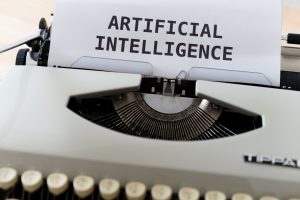

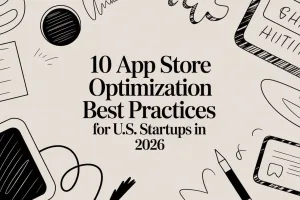







Add Comment